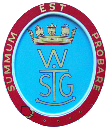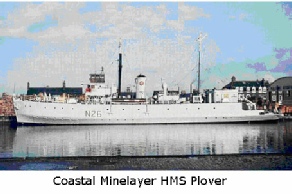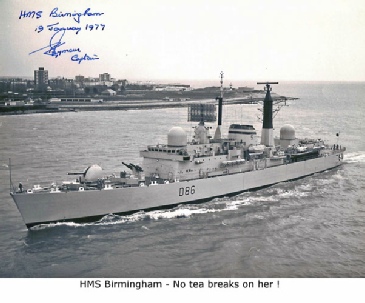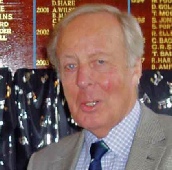Weapons Systems Tuning Group Reunion

© WSTG Reunion Committee 2016
Go to top of page
DMJ ‘Knocker’ White
Knocker’s Story
I was born in Portsmouth in1936 and apart from a few weeks evacuated to Basingstoke grew up there.
I joined the navy on 7 January 1952 at HMS Fisgard in Torpoint as an artificer apprentice,
just short of my 16th birthday. Pay for the first year was ten shillings a week. Life at Fisgard was quite tough, we lived in brick huts with the central heating being two coal bogie stoves, useful for toasting bread stolen from the dining hall and heating up a tin of beans if you could afford it. We worked in classrooms or workshops for 5 ½ days a week with 2 or 3 evening classes as well learning general subjects and skill of hand as in those days the artificer mended or made a new bit when necessary. An occasional treat would be a Saturday visit to the cinema in Torpoint or perhaps venture to the Plymouth NAAFI club in nissen huts on a bomb site in the town-
After 18 months I moved to HMS Collingwood to continue the apprenticeship and as this was near home I could cycle there for the alternate weekend from Saturday noon till Sunday evening. Until the age of 17 ½ attending church was compulsory, which limited the weekends a bit. Here we were allowed duty free cigarettes (300 a month for 7s.) which was the start of the downhill run although we were kept fit here with PT, parade work and about a mile walk to the gate and workshops. I first saw television during this time.
 On completion of my time in Collingwood I joined my first ship HMS Plover. 800 tons of coastal minelayer, built in1936, top speed of 8knots with a coal galley, coal stoves on the mess decks and window boxes with flowers around the bridge. All hard to believe these days. My first trip was to the Bay of Biscay where I was violently sick for 3 days! As this ship was so old it had 110 V DC mains and very little equipment, so all that gunnery systems theory I had been taught was held in the memory for future use.
On completion of my time in Collingwood I joined my first ship HMS Plover. 800 tons of coastal minelayer, built in1936, top speed of 8knots with a coal galley, coal stoves on the mess decks and window boxes with flowers around the bridge. All hard to believe these days. My first trip was to the Bay of Biscay where I was violently sick for 3 days! As this ship was so old it had 110 V DC mains and very little equipment, so all that gunnery systems theory I had been taught was held in the memory for future use.
In 1957 I joined the HMS Victorious at the end of her 7 year refit and worked on DLMS, crane, arrestor gear and steam catapults. It was all very interesting and where I first came across binary coding, used in catapult end speed recorders. I also met Derek Middleton who was the senior Chief EA. My own CEA was Ted Birch who ended up in DTSW as a degaussing officer. I found this ship quite interesting with work ranging from having to climb up the funnel casing to the top whilst doing 30 knots to sort out the steam siren’s electrical control, looking like a beetroot as it got hotter the higher you went, to making Ted Birch a birdcage stand in sections, for obvious reasons! And on one Sunday I spent all day sorting out a bomb lift that was going up and down 8 decks on its own accord, I was fit to drop at the end of day!
I next went back to Collingwood for a year’s course to convert to an REA and on completion went to Chatham to join HMS Cassandra about to sail for work up at Portland. Fun and games at sea for 6 weeks) and then a months trip to Singapore. This was the strange world of radio and radar and various Far East hot spots. A long time was spent in Hong Kong where I drank too much and experienced a typhoon while tied up to a buoy. Indeed very rough! We also spent some time on anti-
I flew home and returned to Collingwood to teach 600 series W/T transmitters for a year. Drafting to HMS Eagle as an ADA watch keeper which meant a 9 month course at ASWE where I first met WSTG in the form of Ivor Taylor and Derek Bond. The initial time was spent supporting programmers who never seemed to go home! As the CREA got promoted I then took his place as AlCREA after a one week course on Radar Type 984. Time was spent in the Far East and Mombassa.
Early in 1966 I left the Navy and joined WSTG, my first job being in Collingwood which felt a little strange. The first trip away was to Glasgow, which was a culture shock. I had problems on day 1 when trying to buy underground tickets where neither the seller or myself could understand each other. Luckily Peter Horrocks was there to interpret. The next shock was lunch when Joe Cleall led us into a cafe outside the yard gate and we sat at wooden tables on wooden benches, no chairs then. When we finished for the day we saw two drunks asleep in the gutter, No mean city in those days!
I continued in the ADA section for some years on DA systems and got promoted to HPTO/PT0 2 in the process. I thought our greatest achievement was the STW of Birmingham without Ferranti and with no tea breaks! Other sections were horrified. During this time we often went on Sunday excursions with the Seadart team to Llandudno by sea fom Liverpool and train trips to Blackpool, Southport, Port Sunlight and Chester. Other sections thought we were mad. We were also at Oldham during the 3 day week and one Sunday with no power I went on a walk around the town with Rod Howes who kindly explained the word "relict" on a gravestone. You learnt a lot in WSTG!

An independent view of my early days in WSTG is at "Ode to Knocker". Click here to view "Ode to Knocker"
After a period of time I passed the board for SPTO. Sitting quietly in ASWE I started to hear rumours that I was going to get Ken Wingate’s job as Radar Section SPTO; that the team were rather worried I might instantly stop all tea breaks and inflict other horrors. Kindly, some said wait and see! I had still heard nothing and when Ken rang to ask when I would take over I phoned Ernie Brimecombe to ask, was it true? His response was instant panic that no one had told me and he was rather embarrassed.
In time the post expanded to include stabilisation and then GWS 25 and ultimately GWS 26. I found the latter a nightmare as all work was done on a fixed price contract controlled by the equipment project. Consequently MRSL took little notice of us and all we seemed to do was take the blame when things did not go to plan. During this period I was approached with some requests from team members that left me almost speechless: one wanted to go to Chatham to see his friends and the other to Barrow to go fell walking. But there were no ships in either yard! I did wonder if some of my predecessors were running specialist sections or a Travel Agency!
After this I managed to pass board for Grade7/PPTO at the second attempt and was instantly offered the job as SNO Belfast and just as quickly declined it. I continued in the same job until one afternoon Tony Morris, Head of WSTG, walked in to tell me that the Controller had decreed that another Grade 7 post was needed and it had been decided that Tony would move onto Ranges and his job was going, was I interested? I rushed down the corridor to ask the AD who as usual was writing a long letter. His response was to show a complete lack of interest so I presumed I was not flavour of the month. However I then rang personnel who knew nothing about it but in 30 minutes there was a return call to say it was true and that the Director Pat Bryan was happy to have me start the job on Monday. ( Thanks Tony.)
After the "writing AD" we had Captain Roger Sharp who was an ex-
I seemed to spend most of my time saying no to ships’ officers who insisted their CO wanted to go to the Med for 6 months of the Part 4 programme and hosting staff audits, and studies by various people to try and shut us down. One who came from BAE turned out to be a retired Captain who was my LO on the Cassandra so he gave us a good report! Strangely I also had to produce one myself, totally unbiased of course! All seemed to be filed and forgotten.
Throughout these last 7 years there was a constant threat of staff cuts. At my first management meeting the AD wanted 20 posts. I resisted and Ranges bore these reduction. Overall only 4 or 5 posts were lost during my time in the job which was quite good remembering the climate during those years.
Retirement came in 1995 and I continued with genealogy, dog walking and general pottering. Uploading the family tree to the Mormon website resulted in two letters from Australia from distant connections. All quite interesting as we had sorted it all out before lots of information was on the web, making visits to Record Offices all over the south.
I still keep my sea legs working making an annual trip on the PS Waverley!
Happy retirement.
